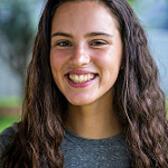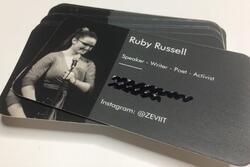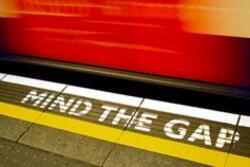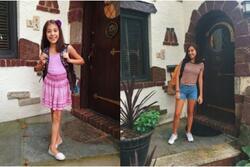This is Not My Story
Hey, before you read my experience of Madison, check out these other narratives.
Ok, now you may proceed:
My hometown of Madison, Wisconsin is beautiful. From the extensive bike path network to the plethora of independent bookstores to the weekly farmers’ market overflowing with fresh produce, Madison feels like a small utopia. I’ve lived in Madison for my entire life, and although our winters can be miserable, I love it here.
Besides its bike-friendly status, Madison also has a reputation for being incredibly liberal. You can’t go one block in Madison without spotting a Prius sporting a bumper sticker in support of a Democratic candidate. Often, Madison feels like an insulated left-leaning bubble within red Wisconsin. In the 2016 presidential election, Hillary Clinton won Madison by 70%, while Trump won Wisconsin overall. As a result, the liberal atmosphere feels integral to the city’s identity. In my mind, this intense progressiveness meant we had the most tolerant, equitable, and nondiscriminatory town possible.
Growing up in Madison, I have rarely been challenged about this notion. My high school is overflowing with clubs promoting gender equality, activism, and political awareness. Protest marches are common at our State Capitol building and I’ve attended many—my homemade signs supporting abortion, unions, immigration, and (fill in your liberal cause of choice) held high and proud. “Look at me,” I’ve wanted to shout through my megaphone, “I am the perfect activist!”
Slowly, however, cracks began to form in my perception of myself and of Madison. Once, during my sophomore year, I needed to retrieve a textbook from my locker during class time. I went to my teacher for a hall pass, but she told me to go without one. As I slipped out of class and began walking to my locker, I noticed a hall monitor in conversation with a Black female student. I held my breath as I passed them, hoping I wouldn’t be stopped because of my obvious lack of a hall pass. Luckily, I wasn’t, but before I walked out of earshot, I heard the girl exclaim to the monitor, “You didn’t stop her because she’s white!”
I was stunned speechless. She was right, of course. I realized I had seen the same situation play out in the hallways of my school before. If I had been Black or Latina, the monitor would have stopped me instantly and demanded to see a pass, already assuming I was purposefully skipping class.
This incident forced me to reconsider what kind of role race plays at my school. Looking around my honors classes, I found I could locate less than a handful of students of color, even though minority ethnic groups account for almost half of the student body. I was also appalled to find out that Black, Hispanic, and Asian students graduate at a rate 10 percentage points behind their white counterparts. Clearly, something is wrong within our school system. Inexcusably, I had allowed my privilege to blind me from understanding how deep the disparities ran.
At the time, however, I still wasn’t able to see these fundamental inequities within the broader context of Madison. In my mind, my school was the sole perpetrator, somehow acting independently of its geographical context.
A few months ago, my cousin invited my family over for dinner. As we sat around the table, chowing down on pesto noodles and discussing current events, the conversation slowly turned to Madison news. My cousin brought up a recent incident involving Sheila Stubbs, a Black woman running to represent Madison in the Wisconsin State Assembly. Upon seeing Stubbs canvassing for her upcoming election, a white passerby called the police, automatically assuming a drug deal was taking place. I was aghast at this evidently racist incident. “How could this have happened in Madison?” I asked. “People here are so accepting.”
Now it was my cousin’s turn to be surprised. She patiently pointed out several more incidents facts about Madison which I had allowed myself to tune out: The shooting of Tony Robinson, an unarmed Black man, by a white cop, had occurred only a few miles from my home. Black Madisonians are 10 times more likely to be arrested than their white counterparts. Allied Drive, an area of Madison that is comprised of 98% people of color, is routinely exploited and mistreated by the city. These facts, among an endless list of others, finally shook me out of my privileged daze.
Looking back on my view of Madison, I feel ashamed and infuriated. How had I allowed my ignorance to be so blinding for such a long time? Why had I never forced myself to look beyond the safety of my privilege?
It’s easy to stay trapped in a cycle of self-hatred and self-deprecation. But, eventually, I came to a second realization. The issue of racism in Madison isn’t about me at all; it’s about Madison’s minority communities. Of course, I must use my new understanding of my not-so-utopian city to become a better ally. The impact of the pain and prejudice within Madison, however, is not my narrative to tell.
Taking the first steps towards using my white privilege for good is as necessary as it is overdue. The first and most important step will be to step back from my own interpretations of these issues, and instead educate myself using the words of those directly affected. I plan on beginning by reading books such as The New Jim Crow, Pushout, and Between the World and Me, among many, many others.
As I begin to question my own ignorance, grapple with my new worldview, and, above all, prevent myself from becoming the protagonist, I will get it wrong time and time again. The more I try, the more I will fail. But hopefully each of these failures will help me become a more considerate and effective ally. Instead of raising my own voice higher and higher, I will pass the megaphone on.
This piece was written as part of JWA’s Rising Voices Fellowship.








Love it and especially the title
Beautiful